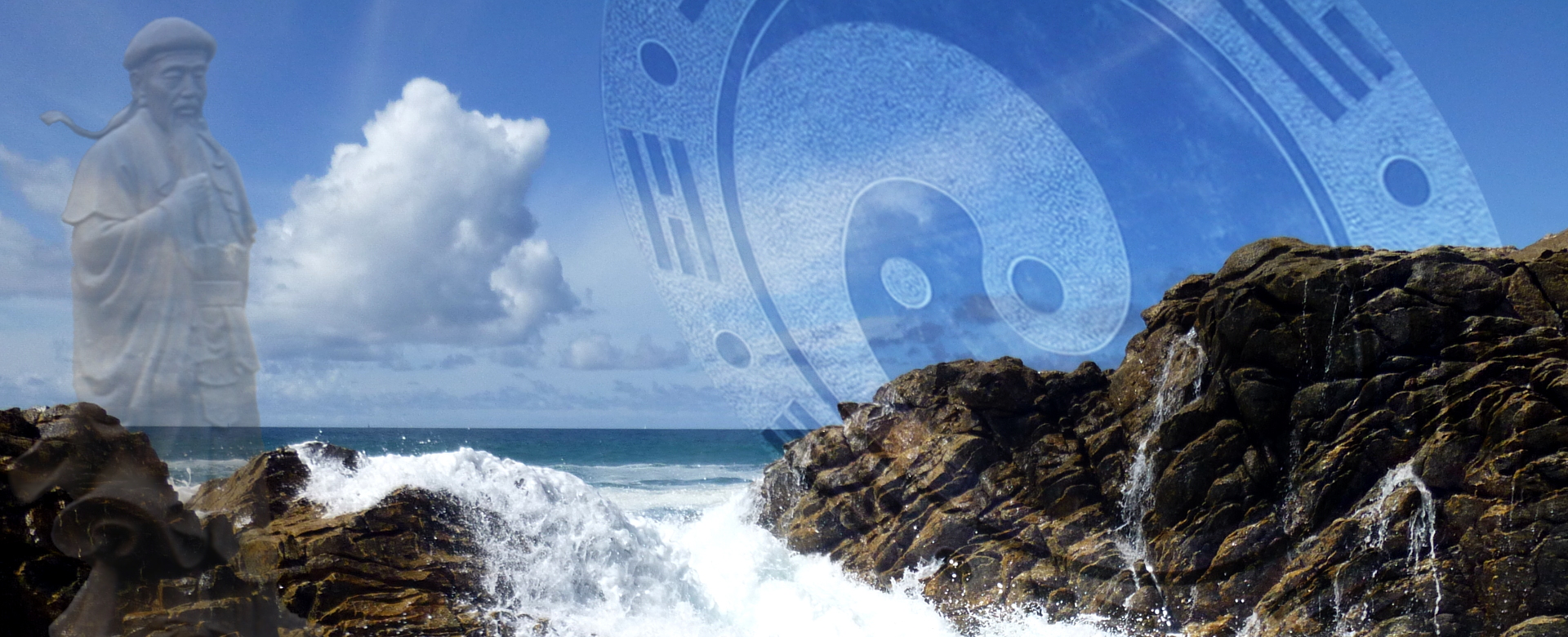洪懿祥 Hong Yixiang (Hung I-Hsiang)
A few days ago my teacher Dietmar Stubenbaum enthusiastically told me that he had discovered two short video sequences with the famous Taiwanese martial artist Hong Yixiang (Hung I-Hsiang) 洪懿祥 (1925-1993) with his friend, the young Marcus Brinkman, a student of Hong Yixiang, which had suddenly transported him back to his times in Taiwan. Hong Yixiang, who specialized in Xingyiquan, Baguazhang and Taijiquan, was once one of most legendary Taiwan's full contact fighters.
Howard Reid and Michael Croucher describe their impression of Hong Yixiang (Hung I-Hsiang) 洪懿祥 in their 1983 bestseller "The Warrior's Way", which is based on the BBC documentary "The Way Of The Warrior":
"Sometimes he grabs a student, with what seams like abnormal speed for such a big man, presses a vital point, applies a lock or immobilizes a limb to illustrate his remark.
Then he tosses the (agonized) student aside with a chuckle and returns to his work. Visiting his house or training-hall, or attending the breakfast he hosts at a street-side cafe after the early morning training session, is often much more like beeing at a university seminar than fighting men.
All his students, some of whom are still children, but many of tehm over 60 years old, seem totally absorbed by their studies, and are constantly searching for the higher and deeper truths contained in the internal Chinese arts."
The two videos above are a testimony to the time when a handful of Western pioneers such as Marcus Brinkman, Dietmar Stubenbaum, Hermann Bohn, Bill (Arvo) Tucker, Bradford Tyrey, Tim Cartmell and Michael DeMarco [1] lived in Taiwan in the 70s and 80s to study the domestic martial arts seriously and for many years (those who were there earlier include names like Robert Smith and Ken Fish). They were able to experience many old masters, some of whom fled to Taiwan with Chiang Kai-shek (Jiang Jieshi) from mainland China in 1949 after his defeat by Mao Zedong. Many of the old masters were still born in the 19th or early 20th century. A few should be mentioned here, such as Du Yuze (1897-1990), Gong Baozai (1904-2000), Wang Shujin (1904-1981) and Chang Dongsheng (1908-1986).
[1] The enumeration of the pioneers is to be regarded as exemplary, likewise that of the masters, and by no means complete, all those who are not named may please forgive me.
Hong Yinxian's 洪懿祥 student Luo Dexiu 羅德修, who was among other things one of several Xingyiquan teachers Dietmar Stubenbaums during his time in Taiwan, writes on his website about his teacher:
https://www.yizong.org/index.php/en/features/hung-i-hsiang
"HUNG Laoshi was a kind-hearted man, but he wasn't much of a speechmaker. He didn't like to talk much, but loved to demonstrate the genuine skills and technique to give students the genuine flavor of the art. He was my precious teacher, and forever worthy of my deepest respect."
More information about Hong Yixiang (Hung I-Hsiang) 洪懿祥 can be found on Wikipedia:
https://en.wikipedia.org/wiki/Hung_I-HsiangExcerpt:
"After he had studied with Chang for several years, Hung often led classes for Chang. Because the internal martial arts were still very new in Taiwan, many curious people would come to test Chang's skill. Hung said that Chang would often send him out to show the visitors what the internal styles were all about. Many martial artists in Taiwan remember Hung as being someone who was involved in many fights, both in and out of the martial arts studio."
Marcus Brinkman 2019:
Another small excerpt about Hong Yixiang (Hung I-Hsiang) 洪懿祥 from "The Way of the Warrior":
"His son Tse Han told the story:
"` My grandfather was a candle-maker. Long ago, before the age of electricity in Taiwan, candles were indispensable household items. As Candle-makers we became rather prosperous, although we became very busy as well. In order to give his sons culture, also to teach them self-defense, my grandfather retained several renowned kung fu masters to come to our home and teach his children. At first, they were all masters of the Shaolin School, althou not the top-ranking masters.
` At the same time, my grandfather also enjoyed inviting many different people with fighting backgrounds to our house as guests. These men mostly came from the mainland. One of them was Chang Chuen-feng, who later became my father's teacher. My father was the fourth son among five. Of my grandfather's five sons, the second, third and fourth enjouyed studying kung fu very much. They often studied under Master Chang.
` Although each of the three was good at one skill at least, none was ever able to overpower the Master. Therfore, my grandfather decided to ask Master Chang to become our household master. Chang specialized in hsig-i and pa-kua.
` Another master was Cheng Han-ming, who had been an engineer formerly working on the mainland in the Yellow River Engineering Bureau. Cheng was a Master of Shaolin boxing, hsig-i and t'ai-chi. He discovered that his disciples had not learned t'ai-chi, and he considered this to be inadequate. So he very politely asked my grandfather if he could have one of his sons, whom he liked very much, as a personal disciple. That was my father."...
Something similar took place in the house of Du Yuze, whose father Du Youmei hired Chen Yanxi (Chen Fake's father) as a bodyguard, and to teach his sons in martial arts:
From cultura martialis:
"When Master Du was 18 years old, his father had the very famous Chen style teacher Chen Yanxi 陳延熙, a representative of the 16th generation, in his home in the neighboring town of Jinhuazhen 清化鎮, very close to Chen Village , where he was to teach his sons in Chen-style Taijiquan. The master himself was a younger son of the old master Chen Gengyun 陳耕耘
of the 15th generation, in turn a legitimate son of Chen Zhangxing 陳張興
.
Du Youmei was also friend with Chen Xin, helped publish Chen Xin's work, and wrote a foreword for the book."
Annemarie Leippert
English translation Marek Melichar

